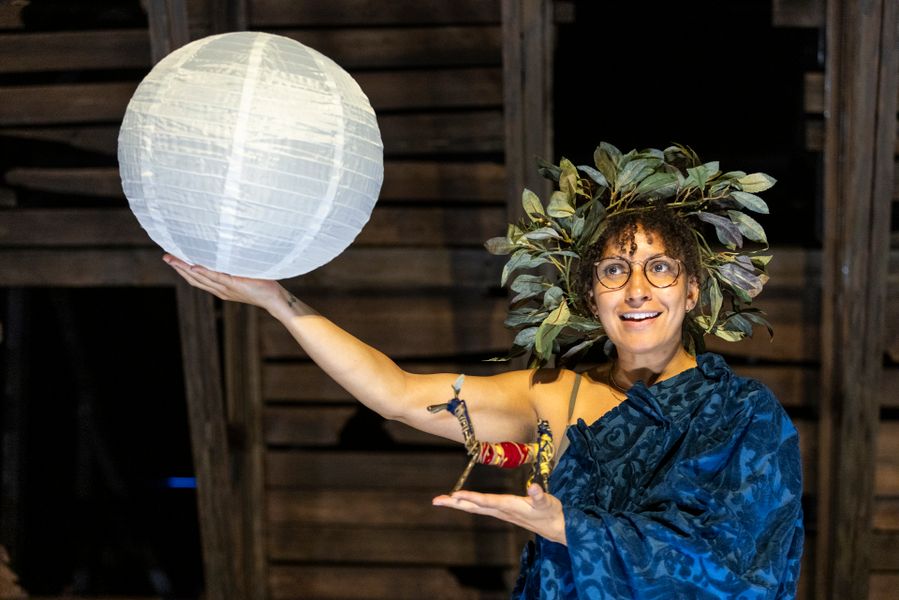
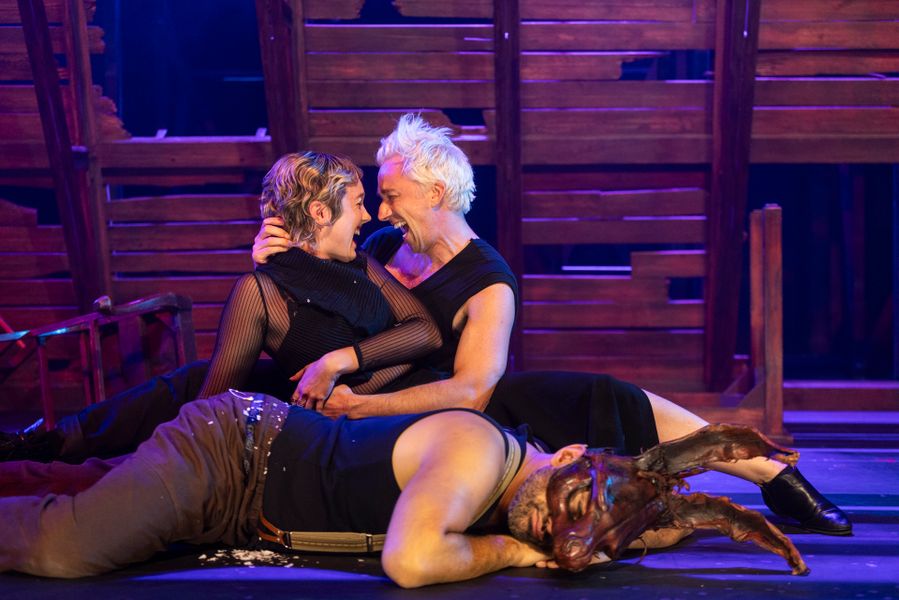

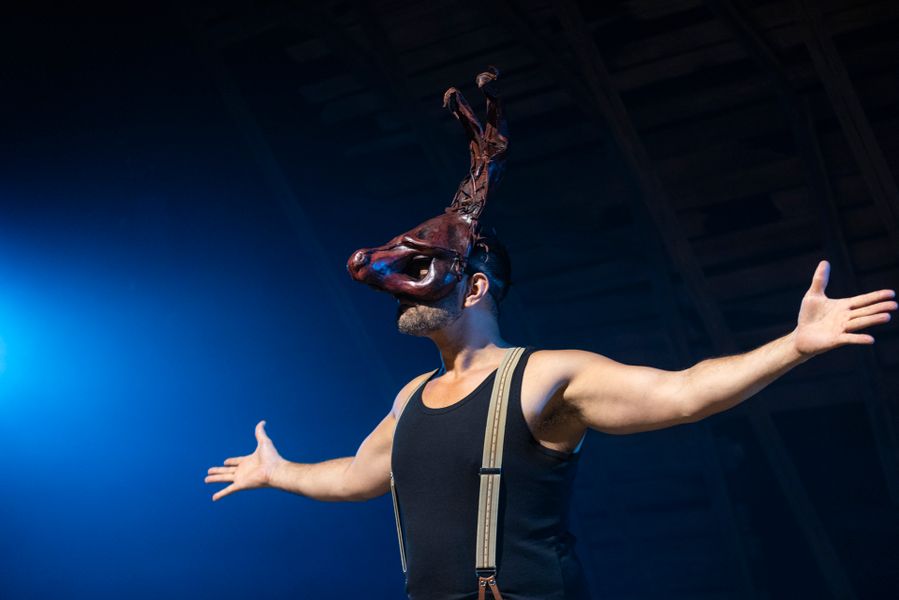
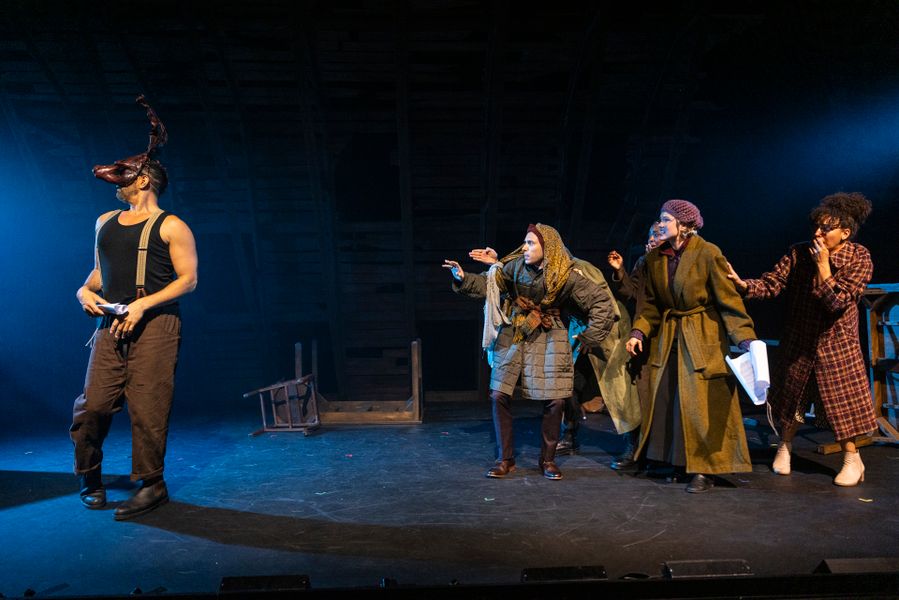
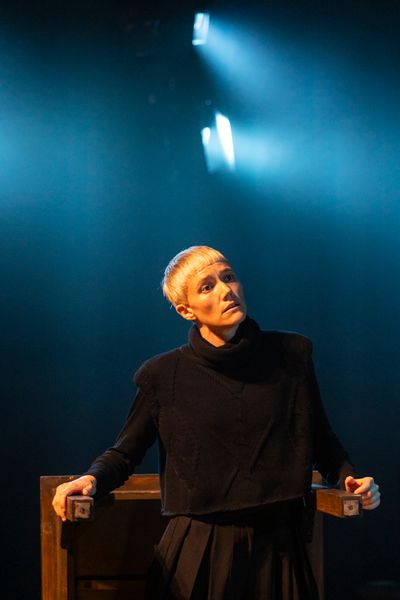
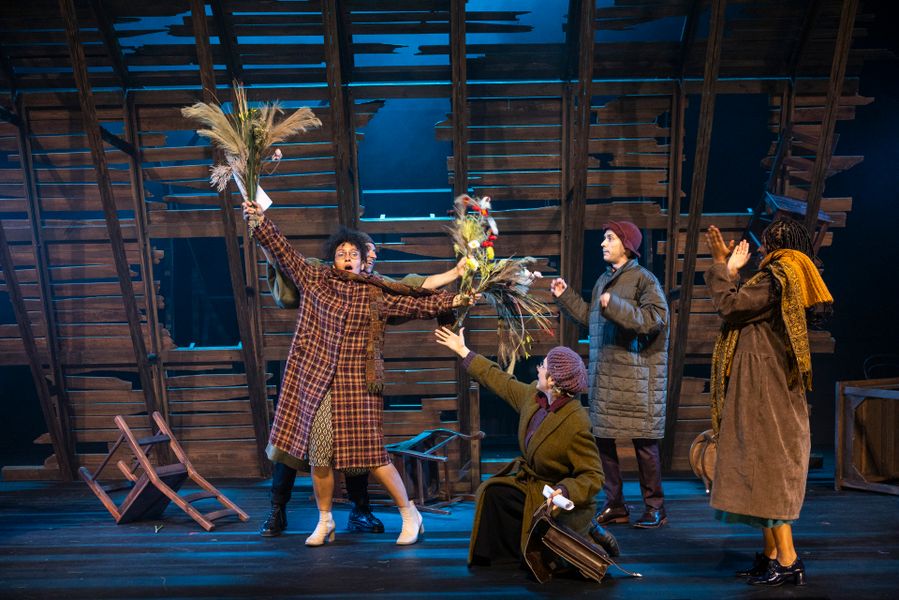



Professor Emma Smith is a leading authority on William Shakespeare’s work. While in Sydney, Emma dropped in to Bell Shakespeare to talk A Midsummer Night’s Dream with writer Andy McLean.
Andy McLean: What do you love about A Midsummer Night’s Dream?
Emma Smith: Personally, it’s probably my favourite of Shakespeare’s comedies.
AM: Wow, so this is a big question for you, right off the bat! Is there a particular production you’ve enjoyed?
ES: Often, I think the way a play gets adapted really tells us something quite interesting about the play itself. The way A Midsummer Night’s Dream has been adapted has always been musical, and I think that’s because what Shakespeare experiments with here – in a way we don’t think he does with other plays – is three or four sets of characters who just sound very different. They’re in different sound worlds.
And that soundscape is what I really enjoy about A Midsummer Night’s Dream.
AM: That would explain why there’s such a high proportion of rhyming lines in the play.
ES: That’s right. It’s kind of a romantic comedy model, isn’t it? It’s about wanting the words to be together and to chime in with each other. The lines are pairing off just like the couples are pairing off.
AM: And yet, for a romantic comedy, there’s a lot of darkness just under the surface.
ES: Yes, there’s an inherent darkness in the play. If you think about the time when it was [first] being staged, a forest at night was a scary place [for William Shakespeare’s original audiences]. So you’ve got all these characters who are in terrible danger. You’ve got Hermia under the threat of death, and presumably everybody that runs off into that forest that night is taking a huge risk.
There’s that moment when Hermia and Lysander are in the wood, and they settle down to sleep and Hermia instructs him to sleep further off. That’s partly about propriety but there’s also a sense that maybe Lysander, too, is dangerous for a moment, and that the threat is going to come from him rather than from the nameless things in the wood, and that is a terrifying idea.
The play is full of the darkness of our desires. In that sense the wood is the unconscious, or the wood is the night-time world of the court.
We sometimes imagine that the ‘dream’ in the title means: What would be your perfect day? But in fact, it’s a dream in a much more psychoanalytic sense, where you’re going to your worst place or you’re processing traumas. I think it’s a dream in a very modern way.
AM: Bell Shakespeare’s 2024 production is a real celebration of theatre, with actors changing costumes on stage, for example, so that the suspension of disbelief by audience members is doubly powerful. And the original play itself is a celebration of theatre too, isn’t it.
ES: That’s such a lovely thought! I really love the play ‘Pyramus and Thisbe’, which the Rude Mechanicals put on at the end. It’s very, very funny. Very broad humour, very bawdy with the chink in the wall and all that… it’s just completely wonderful.
I think one of the ways that scene shows the great power of theatre is to show, so lovingly, what not very good theatre looks like!
Emma Smith is Professor of Shakespeare Studies at the University of Oxford and is the author of several books including This is Shakespeare: How to Read the World’s Greatest Playwright (Pelican).
Bell Shakespeare’s production of A Midsummer Night’s Dream tours nationally until the end of June.







